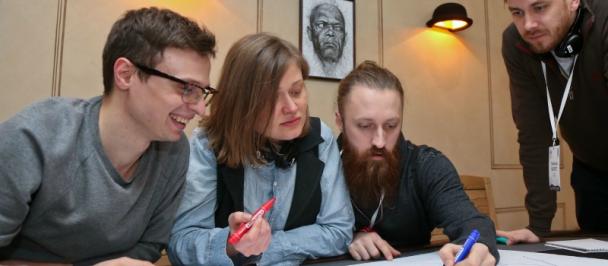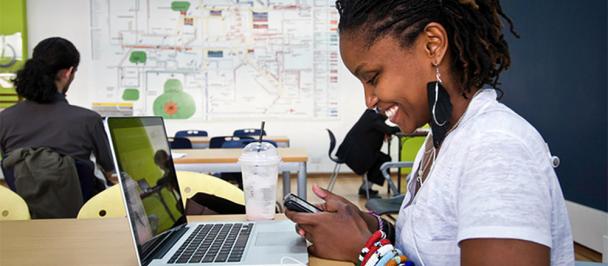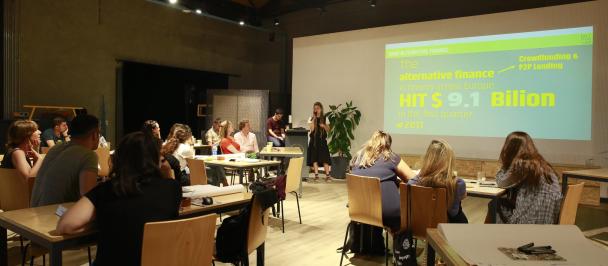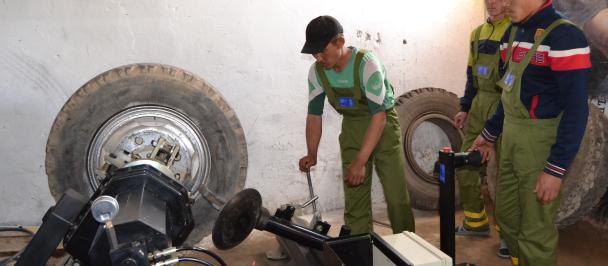Hardly a day goes by in the development world without hearing the term “platform”. Like in the business world, it’s becoming harder for any development organization to provide a single service or product that will make broad impact. Airbnb doesn’t build homes, it creates a network that brings together host and guest.
Likewise, it’s impossible to eradicate poverty – a complex phenomenon – without connecting different areas of expertise and partners across a wide range of thematic issues. And it’s often the case that the people we’re trying to pull out of poverty are closer to the problem and entitled to have a say about the solution.
While building platforms doesn’t happen overnight, it’s highly likely you’re already working in ways that resemble that. Take crowdfunding: it helps diversify funding, involves target groups, and mobilizes experts from all walks of life. I’ve led 35 crowdfunding campaigns at UNDP since 2015 and mobilized US$1.2 million. Our field offices are working on US$7 million worth of campaigns. So here’s my take-away:

- Think broad. Turning old development methods on their head, crowdfunding enables development institutions to sit at the same table with everybody else –people from poor neighborhoods, governments, startups, banks and large donors, and of course crowdfunding marketplaces. To survive in the 21st century, development organizations must diversify their contacts with partners that are ready to research, test and scale up solutions to complex problems.
- Build your ecosystem. Get a better understanding of the national context. Study the legislation and bring on board national partners who already have local connections to crowds. The more partners are able to latch on and add value, the higher the chances of success. Think of yourself as the app store: when developers come in and launch their own apps, you’ve created a virtuous circle in which the parts bring exponentially more value into the whole.
- Link up with tech platforms. Through crowdfunding we’ve supported lots of UNDP tech-based platforms, like LiveLebanon.org, GreenCrowds in Ecuador, or YemenOurHome. We’re working with them to move away from online donations, towards building communities that can deliver long-term impact. It’s not enough just putting a “donate” button on your page. These online communities can be powerful starting points for continuing to rally investors and partners.
- Partner with cities to achieve quick wins. London is creating a city for all Londoners through crowdfunding. Madrid has its own crowdsourcing platform. We’re transferring these practices to some unlikely places like Somalia, working with the diaspora to help people in Mogadishu create revenue, and withstand violence and disaster.
- Go solar: it’s the ultimate platform initiative. It’s not development if it isn’t green. Funding solar is the ultimate way to hit multiple SDG targets. We teamed up with over 30 crowdfunding platforms to deliver Citizenergy, which helped invest € 40 million into clean energy. With UNDP Moldova and Sun Exchange, we are also developing a US$1 million solar plant using cryptocurrencies.
- Support small businesses – It’s hard for SMEs to get and repay their credit. But our experience in Ukraine, Bosnia and Herzegovina, Morocco and Turkey has shown that crowdfunding can be a great way to get new businesses off the ground. By the same token, development organizations should intensify their work to bring crowd-funders, businesses, third party verifiers and others together to make business more inclusive.
- Use new sources of financing. In the Muslim world, Zakat (donations) are worth 200 billion to 1 trillion. We’re now working with the Islamic Development Bank on a proposal to fund NGOs. In Indonesia, UNDP is designing a brand new platform that will - among other things - use Islamic finance to help the country achieve the SDGs.
- Build networks to help people recover from disaster. Campaigns such as GoFundMe and YouCaring are putting a face on individuals affected by disasters and mobilizing global funding. The Connecting Business Initiative is taking that approach further, mobilizing business networks so they too can get involved.

Crowdfunding is the originator of all modern development platforms. When we turn to platforms, we direct money where it is most needed. People can crowdsource the best ideas and vote for them. Governments and donors can match the funds collected, financing projects citizens actually support.
In an increasingly networked age, it’s not only capable of unleashing significant impact. It can also inspire thousands of development organizations around the world to rally partners and contribute to global causes more effectively.
This post was originally published on IPS News.
Alternative Finance Lab is an internal startup run out of UNDP Istanbul Regional Hub.

 Locations
Locations





